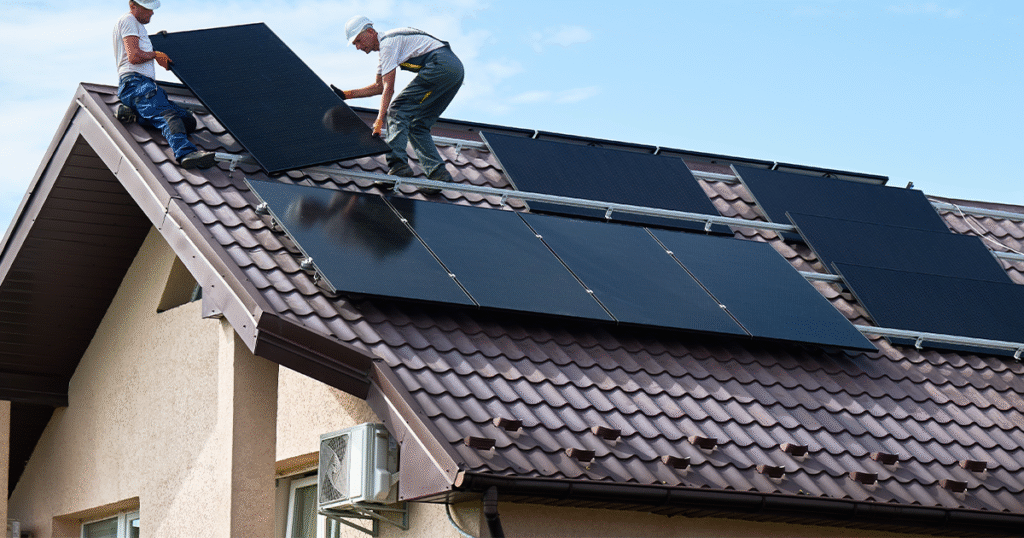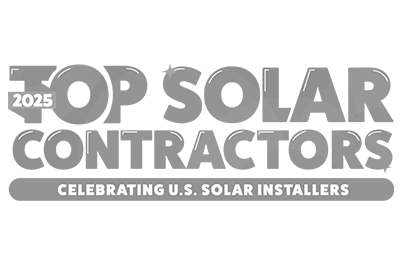In recent years, the solar industry has thrived under the 30% Investment Tax Credit (ITC) and flexible financing options. However, new economic policies are causing the entire solar industry to shrink. So let’s answer:
- How these new policies are changing the industry
- How these changes affect you, someone interested in residential solar
- And how we are adapting to help you achieve energy independence.
How are these new economic policies shaking up the solar industry?
1. The 30% tax credit is GONE in 2026
If you invest in a residential solar power system, then you can claim a tax credit equivalent to 30% of the net installation costs. So if you purchase a $30,000 solar system, then you can reduce the amount of taxes you owe by $9,000. Originally, the ITC was meant to phase out by 2035. However, the phase-out has now accelerated to 2026.
2. The majority of a solar power system must now be made in the USA.
On paper, this is a pretty good idea. We all want to support American industries, after all. If we want a solar system to qualify for the best incentives, most of its components must be made in the United States. However, supply chains don’t change overnight. While many manufacturers are investing in onshore supply chains, it’s only a start.

3. Solar lease providers are becoming more exclusive about who they work with.
As tax credits disappear, the price of solar increases. So many homeowners are opting for third-party ownership (TPO), essentially leasing their solar power system. To offer these leases, a solar installer must work with a TPO provider. But major TPO providers are risk-averse and don’t want to work with smaller, less established installers. They want installers that will be around for a while.
4. If you want to own your system, you’re financing options are limited.
You’ll get the most out of your solar system if you own it. But without tax credits, solar is becoming more expensive. So we need to get creative and develop some more flexible financing options. Luckily, we already have a suite of innovative ownership options.
How does all this affect YOU— someone interested in residential solar?
Firstly, the accelerated ITC phase-out creates urgency. Some less reputable installers are trying to exploit this anxiety, encouraging you to “BUY NOW!”
But you might not be ready to go solar. If they don’t have good financing options for ownership, then you might get locked into a bad lease. And if they don’t meet the new domestic content guidelines, they’ll have to raise their prices just to stay competitive.
That’s all to say, if you don’t work with an established, reputable installer, you might get stuck with a bad investment.

Working with an established and reputable solar company is more important than ever.
We believe in solar, but we won’t achieve clean energy by chasing trends and cutting corners. We will achieve clean energy by adapting to this changing landscape.
We want you to go solar when you’re financially ready.
That’s why we offer a wide range of financing options for ownership. And it’s why we’ve maintained strong partnerships with top lease providers. So you can enjoy access to reliable and affordable financing.
Plus, we already fit into the new domestic content rules.
We’ve been using U.S.-made components since our inception, and we’re proud of it! Our supply chain already aligns with the new, stricter domestic content rules. We’re a certified domestic installer!
Finally, we’re nationally recognized as a Top Solar Residential Solar Contractor.
We ranked 19th in the nation on Solar Power World’s 2025 Top Residential Contractors List. We’re 19 out of 233 contractors on the list.
Solar Power World is the premier media outlet for the United States’ solar industry. Basically, the New York Times of the solar world. It’s an honor to be recognized.

